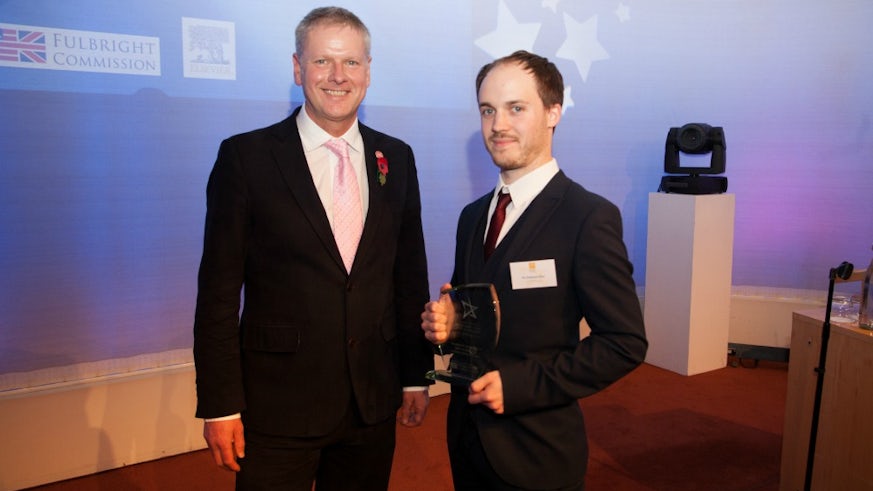Communication award for early career researcher
9 November 2015

University researcher picks up inaugural communication award for engaging the public with astrophysics
An early career researcher from the School of Physics and Astronomy has been recognised by world-leading company Elsevier for his creative and personal approach to communicating astrophysics research to the public.
Matthew Allen, a PhD student who is studying the evolution of galaxies, picked up the inaugural Researchers’ Choice Communication Award at an awards dinner in London (5 November), attended by 70 senior figures from government, academia and industry.
Matthew was commended for the creativity, personality and empathy in his approach to translating science into engaging content. His weekly video series on YouTube, posted under the guise of ‘UKAstroNut’, explains a wide-range of scientific topics at a basic level that anyone can engage with, and regularly attracts thousands of viewers.
Some of his work can be viewed here.
As early career researchers face a variety of pressures when they embark on a career in academia, the award helps to recognise the vital importance of communication skills that not only enhance career development, but also fulfil the obligation of engaging the public with science.
Congratulating the Award winners, Ron Mobed, CEO of Elsevier, said: “Investing in young researchers is essential to securing the future of scientific discovery. These awards aim to motivate and support researchers early in their careers to deliver ground-breaking research. We’re delighted to celebrate their achievements and, through raising their visibility, help them to engage the wider public in the great work they do to advance science and society.”
Gareth Davies, Director General for Knowledge and Innovation, Department for Business, Innovation and Skills, UK, who gave a keynote speech at the event, said: “All the winners should be very proud of their achievements. The UK research base is one of our country’s great success stories and punches well above its weight, so to be at the front of this field is no mean feat. I wish them every success for the future.”
On receiving the award, Matthew said: “I feel so honoured to have been given this award. It’s great that the outreach I and many other researchers do, alongside our normal research, is recognised. The award will motivate me to continue doing outreach and hopefully begin a career after my PhD in science communication.”
Matthew was nominated for the award by the research community, who voted for him through Mendeley’s social media network channels. An expert panel of judges then selected Matthew from a shortlist of nominees.